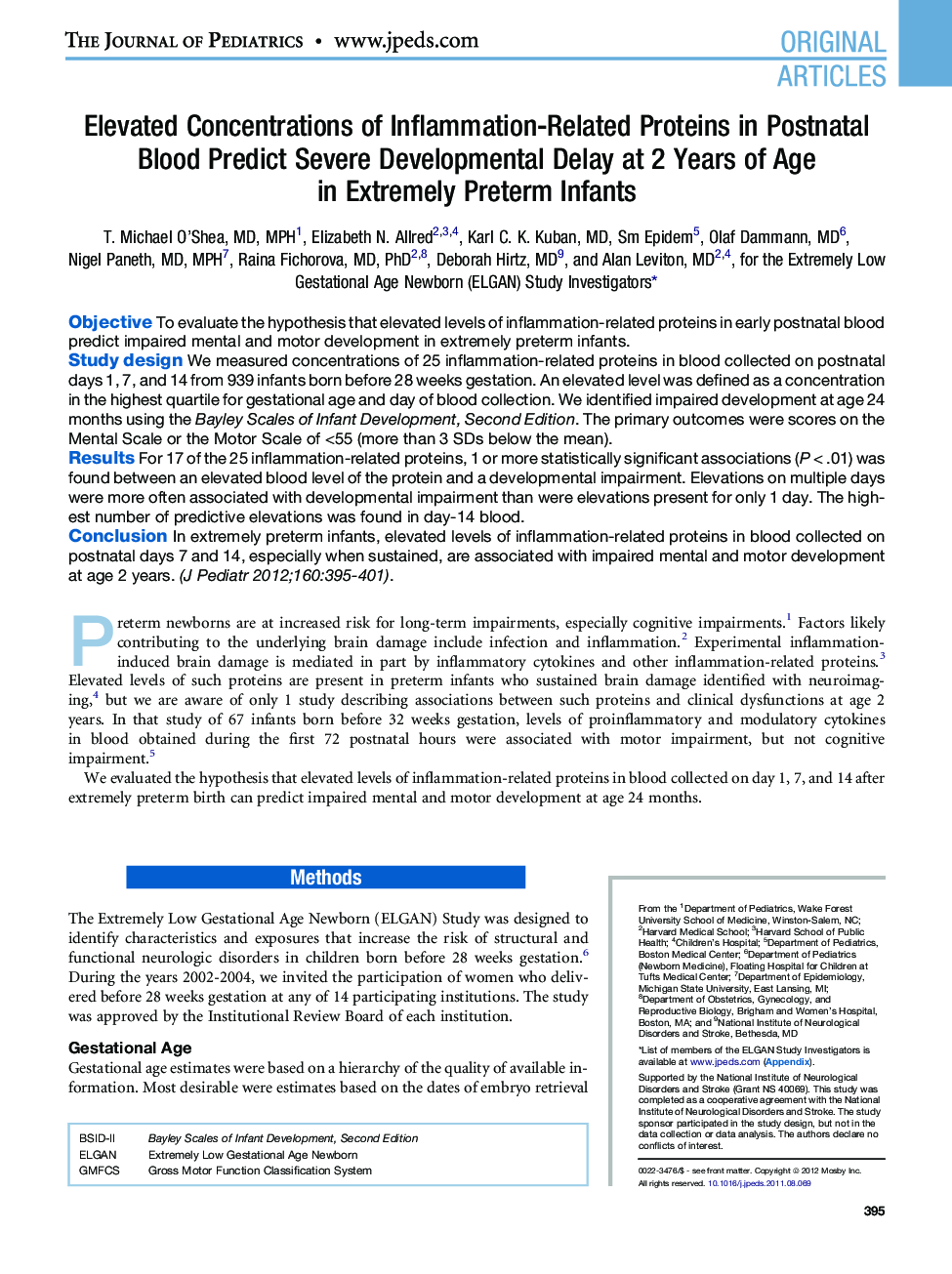| Article ID | Journal | Published Year | Pages | File Type |
|---|---|---|---|---|
| 6225272 | The Journal of Pediatrics | 2012 | 11 Pages |
ObjectiveTo evaluate the hypothesis that elevated levels of inflammation-related proteins in early postnatal blood predict impaired mental and motor development in extremely preterm infants.Study designWe measured concentrations of 25 inflammation-related proteins in blood collected on postnatal days 1, 7, and 14 from 939 infants born before 28 weeks gestation. An elevated level was defined as a concentration in the highest quartile for gestational age and day of blood collection. We identified impaired development at age 24 months using the Bayley Scales of Infant Development, Second Edition. The primary outcomes were scores on the Mental Scale or the Motor Scale of <55 (more than 3 SDs below the mean).ResultsFor 17 of the 25 inflammation-related proteins, 1 or more statistically significant associations (PÂ <Â .01) was found between an elevated blood level of the protein and a developmental impairment. Elevations on multiple days were more often associated with developmental impairment than were elevations present for only 1 day. The highest number of predictive elevations was found in day-14 blood.ConclusionIn extremely preterm infants, elevated levels of inflammation-related proteins in blood collected on postnatal days 7 and 14, especially when sustained, are associated with impaired mental and motor development at age 2 years.
